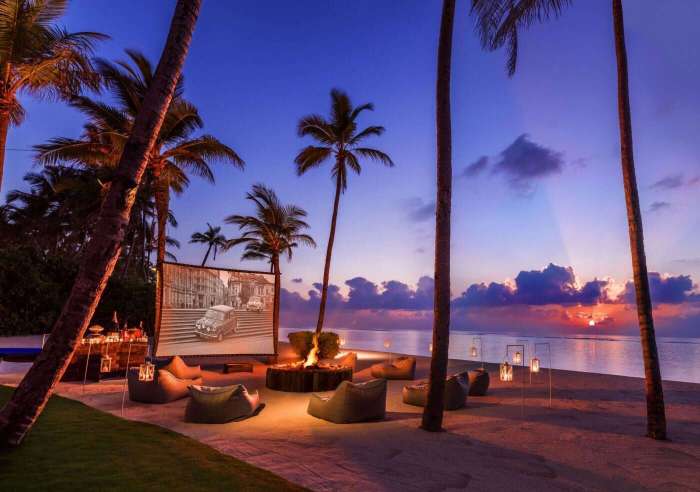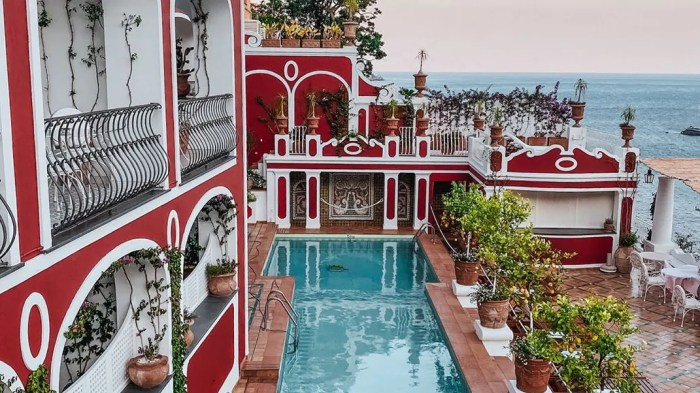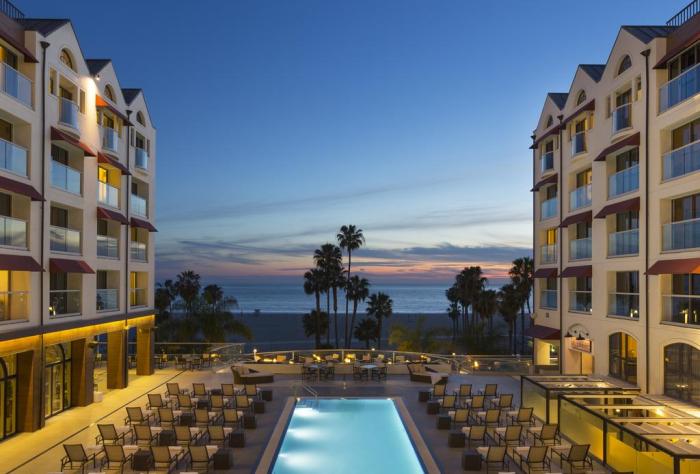Eco-friendly boutique hotels represent a burgeoning sector in the hospitality industry, blending luxury and sustainability. These establishments prioritize environmental responsibility without compromising on the unique charm and personalized service that define the boutique hotel experience. This exploration delves into the multifaceted aspects of eco-conscious hotel management, from sustainable design and construction to waste reduction and community engagement, highlighting the crucial role these hotels play in promoting responsible tourism.
This examination will cover the defining characteristics of eco-friendly boutique hotels, exploring their commitment to sustainable practices and the innovative strategies employed to minimize their environmental footprint. We will analyze various aspects, including sustainable building materials, water and energy conservation techniques, waste management programs, and the cultivation of local partnerships. Furthermore, we’ll consider the crucial role of guest engagement and effective marketing strategies in promoting this sustainable approach to hospitality.
Defining “Eco-Friendly Boutique Hotels”
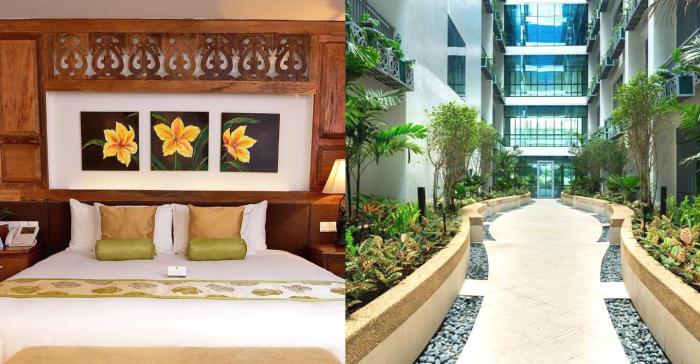
Eco-friendly boutique hotels represent a unique intersection of sustainable tourism and personalized hospitality. They combine the intimate, luxurious experience of a boutique hotel with a strong commitment to minimizing their environmental impact and promoting responsible tourism practices. This commitment extends beyond mere superficial gestures, integrating environmental considerations into every aspect of their operation, from construction and design to daily operations and guest experiences.The key differentiators between a standard boutique hotel and an eco-friendly one lie primarily in their operational philosophy and commitment to sustainability.
While a standard boutique hotel might focus on unique design, personalized service, and a curated guest experience, an eco-friendly boutique hotel prioritizes these aspects while actively reducing its carbon footprint and promoting environmental stewardship. This often involves significant investments in renewable energy sources, water conservation techniques, waste reduction programs, and the sourcing of locally produced, organic food and amenities.
Key Differentiators Between Standard and Eco-Friendly Boutique Hotels
Eco-friendly boutique hotels distinguish themselves through a multifaceted approach to sustainability. This goes beyond simply offering recycling bins; it encompasses a holistic strategy involving energy efficiency (through solar panels, for example, or energy-efficient appliances), water conservation (using low-flow fixtures and rainwater harvesting systems), waste management (implementing comprehensive recycling and composting programs), and sustainable sourcing (prioritizing locally sourced food, organic products, and eco-friendly materials in construction and operations).
They also frequently incorporate elements of biodiversity conservation, such as preserving natural habitats on their property or supporting local conservation initiatives. Furthermore, they actively engage their guests in sustainable practices, educating them about the hotel’s environmental efforts and encouraging responsible behavior.
Eco-Certification and Standards in Hospitality
Several certifications and standards exist to validate a hotel’s commitment to eco-friendly practices. These provide a framework for measuring and verifying sustainability performance, offering guests a reliable indicator of a hotel’s genuine commitment. These certifications often involve rigorous audits and assessments, covering various aspects of a hotel’s operations, including energy and water consumption, waste management, and the sourcing of materials.
Examples include LEED (Leadership in Energy and Environmental Design), Green Globe, and EarthCheck. Each certification has specific criteria and levels of achievement, allowing consumers to compare the environmental performance of different hotels. For instance, a LEED Gold certification indicates a higher level of sustainability achievement than a LEED Silver certification. These certifications provide transparency and accountability, ensuring that the “eco-friendly” claim is backed by verifiable evidence.
Choosing a hotel with a recognized eco-certification provides guests with the assurance that their stay is contributing to a more sustainable future.
Sustainable Design and Construction
Sustainable design and construction are paramount in creating truly eco-friendly boutique hotels. These practices minimize the environmental impact throughout the building’s lifecycle, from material sourcing to demolition. By prioritizing energy efficiency, water conservation, and the use of sustainable materials, these hotels significantly reduce their carbon footprint and contribute to a more sustainable tourism industry.
Eco-friendly boutique hotels employ various architectural and design elements to achieve sustainability. These elements are integrated throughout the design process, influencing the building’s form, materials, and systems. The goal is to create a harmonious balance between the built environment and the natural surroundings, minimizing disruption and maximizing resource efficiency.
Examples of Sustainable Design Elements in Eco-Friendly Boutique Hotels
The following table illustrates several key architectural and design elements that contribute to a hotel’s eco-friendliness. These examples represent a range of practical applications that can be adapted to various contexts and climates.
| Element | Description | Benefit | Example |
|---|---|---|---|
| Passive Solar Design | Optimizing building orientation and window placement to maximize natural sunlight and minimize heating/cooling needs. | Reduced energy consumption for heating and cooling. | A hotel designed with south-facing windows (in the Northern Hemisphere) to capture maximum winter sun, and deep overhangs to shade windows during summer. |
| Green Roofs/Walls | Planting vegetation on rooftops or walls to provide insulation, reduce stormwater runoff, and improve air quality. | Improved energy efficiency, reduced urban heat island effect, and enhanced biodiversity. | A hotel with a green roof featuring drought-tolerant native plants, reducing the need for irrigation and providing habitat for local wildlife. |
| Natural Ventilation | Utilizing natural airflow through strategically placed windows and vents to reduce reliance on mechanical ventilation systems. | Reduced energy consumption for ventilation and improved indoor air quality. | A hotel with operable windows and strategically placed vents to create a natural airflow throughout the building, minimizing the need for air conditioning. |
| Water-Efficient Fixtures | Installing low-flow showerheads, toilets, and faucets to conserve water. | Reduced water consumption and lower water bills. | A hotel using low-flow showerheads that use 2 gallons per minute or less, compared to standard showerheads that may use 2.5 gallons or more. |
Hypothetical Eco-Friendly Boutique Hotel Design
Imagine a coastal boutique hotel built using sustainable materials and energy-efficient systems. The building’s design incorporates passive solar strategies, maximizing natural light and minimizing energy use for artificial lighting and heating. The structure utilizes rammed earth walls for thermal mass, providing natural insulation and regulating indoor temperatures. Reclaimed wood is used for interior finishes, reducing the demand for newly harvested timber.
The roof is a green roof, providing insulation, absorbing rainwater, and supporting local biodiversity. Solar panels generate renewable energy, supplementing the hotel’s energy needs. Greywater recycling systems reuse water from showers and sinks for irrigation, significantly reducing water consumption. The hotel also features rainwater harvesting for non-potable water uses.
Comparison of Sustainable Building Materials
Various sustainable building materials offer unique benefits and drawbacks. A careful selection process considers factors such as embodied carbon, durability, availability, and cost. For instance, bamboo, a rapidly renewable resource, offers high strength-to-weight ratio and excellent aesthetic qualities. However, its susceptibility to moisture requires careful treatment and protection. Reclaimed wood, while reducing the demand for new timber, may require significant processing to ensure structural integrity and pest control.
Rammed earth, a traditional building technique, offers excellent thermal mass and insulation but requires specialized construction skills. Finally, cross-laminated timber (CLT), an engineered wood product, provides high strength and dimensional stability but has a higher embodied carbon footprint compared to some other options. The choice of material often depends on the specific project requirements, local availability, and the overall sustainability goals.
Water and Energy Conservation

Water and energy conservation are paramount in the operation of an eco-friendly boutique hotel. Minimizing environmental impact while maintaining guest comfort requires a strategic approach encompassing both efficient resource management and the adoption of renewable energy sources. This section details practical methods for achieving significant reductions in water and energy consumption.
Water Conservation Methods
Implementing water-saving measures is crucial for reducing a hotel’s environmental footprint and operational costs. The following strategies, when integrated into the hotel’s design and operations, can significantly reduce water usage.
- Low-Flow Fixtures: Installing low-flow showerheads, faucets, and toilets can drastically reduce water consumption without compromising guest experience. These fixtures are designed to deliver the same level of comfort with significantly less water usage, often achieving reductions of 20-60% compared to standard fixtures.
- Water-Efficient Landscaping: Employing drought-tolerant native plants and utilizing xeriscaping techniques (landscaping that minimizes or eliminates the need for supplemental irrigation) significantly reduces water usage for outdoor areas. This approach not only conserves water but also lowers maintenance costs.
- Greywater Recycling Systems: Implementing a greywater recycling system to reuse water from showers, sinks, and laundry for non-potable purposes such as toilet flushing or irrigation can dramatically reduce reliance on municipal water supplies. Proper filtration and treatment are essential for ensuring hygiene and safety.
- Leak Detection and Repair: Regular maintenance and prompt repair of any leaks in plumbing systems are vital to prevent significant water waste. A proactive approach to leak detection, including regular inspections and the use of smart water meters, can minimize losses.
- Guest Education and Awareness Programs: Educating guests about water conservation through informative signage and in-room materials can encourage responsible water usage. Simple prompts like “Reuse towels” or “Shorten your shower” can have a cumulative positive effect.
Energy Conservation Strategies
Reducing energy consumption is a critical aspect of eco-friendly hotel operations. By implementing energy-efficient practices and technologies, hotels can significantly lower their carbon footprint and operating costs.
- Energy-Efficient Appliances and Lighting: Utilizing energy-efficient appliances (refrigerators, HVAC systems, etc.) and LED lighting throughout the hotel can dramatically reduce energy consumption compared to traditional counterparts. LED lighting, for example, uses up to 75% less energy and lasts significantly longer than incandescent bulbs.
- Smart Building Management Systems: Implementing a smart building management system allows for centralized control and monitoring of energy consumption across the hotel. This system can optimize HVAC settings based on occupancy, adjust lighting levels automatically, and identify energy inefficiencies.
- Improved Insulation and Building Envelope: Proper insulation and a well-sealed building envelope minimize heat loss in winter and heat gain in summer, reducing the burden on HVAC systems and lowering energy consumption for heating and cooling.
- Occupancy Sensors: Installing occupancy sensors in guest rooms, hallways, and other areas automatically turns off lights and HVAC systems when rooms are unoccupied, reducing energy waste significantly. This simple technology can lead to considerable savings.
- Energy-Efficient HVAC Systems: Employing high-efficiency HVAC systems with features like variable refrigerant flow (VRF) technology allows for precise temperature control and optimized energy consumption based on individual room needs.
Renewable Energy Implementation Plan
Integrating renewable energy sources into a boutique hotel’s infrastructure is a key step towards achieving sustainability goals. A comprehensive plan should consider various factors to determine the most suitable options.
A phased approach might begin with a feasibility study assessing the hotel’s energy needs, available space for renewable energy installations (rooftop, ground-mounted), and local regulations. This study would evaluate the cost-effectiveness of different renewable energy sources, such as:
- Solar Photovoltaic (PV) Systems: Installing solar panels on the hotel’s roof or in a dedicated ground-mounted array can generate clean electricity to offset grid power consumption. The size of the system would depend on the hotel’s energy demand and available sunlight.
- Solar Thermal Systems: Utilizing solar thermal collectors to heat water for guest rooms and other purposes can significantly reduce reliance on fossil fuel-based water heating. This is particularly effective in areas with abundant sunshine.
- Wind Turbines (if geographically suitable): In locations with consistent wind resources, small-scale wind turbines could supplement electricity generation. However, careful consideration of noise pollution and visual impact is essential.
- Geothermal Energy (if geographically suitable): In areas with suitable geothermal resources, geothermal heat pumps can provide efficient heating and cooling with significantly reduced energy consumption compared to conventional systems.
The implementation plan should include detailed specifications for the chosen renewable energy system, installation timelines, budget allocation, maintenance strategies, and performance monitoring protocols. Securing necessary permits and approvals from local authorities is also a crucial step.
Waste Management and Recycling
Eco-friendly boutique hotels prioritize minimizing their environmental impact through comprehensive waste management and recycling programs. These programs go beyond simple recycling bins and incorporate innovative strategies to reduce waste generation at its source and responsibly manage unavoidable waste streams. Effective waste management is crucial for achieving sustainability goals and creating a positive brand image.Effective waste management and recycling programs in eco-friendly boutique hotels require a multi-pronged approach encompassing source reduction, efficient sorting systems, and responsible disposal or recycling of all materials.
This involves educating staff and guests, implementing practical solutions, and tracking progress to ensure continuous improvement.
Effective Waste Management and Recycling Programs
Implementing effective waste management requires a structured approach, including clear guidelines for staff and guests. This involves providing clearly labeled bins for different waste streams (recyclables, compostables, landfill waste) and providing regular training for staff on proper sorting procedures. Regular audits and data tracking are crucial to identify areas for improvement and measure the program’s success.
| Waste Stream | Management Strategy | Example |
|---|---|---|
| Recyclables (paper, plastic, glass, metal) | Partnering with local recycling facilities, utilizing clearly labeled recycling bins throughout the hotel, and conducting regular staff training on proper sorting. | The hotel contracts with a local recycling center that specializes in processing various materials, ensuring proper sorting and maximizing recycling rates. Clearly labeled bins are placed in guest rooms, public areas, and back-of-house areas. |
| Compostables (food scraps, yard waste) | Implementing an on-site composting system (detailed below), partnering with local composting facilities for larger volumes, and providing compostable alternatives to disposable items. | Food scraps from the kitchen and landscaping waste are composted on-site, reducing landfill waste and creating nutrient-rich soil for the hotel’s landscaping. |
| Landfill Waste | Minimizing landfill waste through source reduction strategies (detailed below), proper waste segregation, and exploring options for waste-to-energy programs. | The hotel actively promotes reusable items (e.g., water bottles, shopping bags), reduces single-use plastics, and carefully segregates waste to minimize the volume sent to landfills. |
Innovative Solutions for Reducing Waste Generation
Beyond efficient waste sorting, innovative solutions play a significant role in minimizing waste. These strategies focus on preventing waste generation in the first place, moving towards a circular economy model.
Several strategies can be implemented:
- Minimizing single-use plastics: Replacing plastic bottles with filtered water dispensers, providing reusable amenities, and using biodegradable alternatives for toiletries and packaging.
- Reducing food waste: Implementing portion control, using inventory management systems to track food usage, and donating excess food to local charities.
- Promoting reusable items: Encouraging guests to use reusable water bottles, shopping bags, and coffee cups through incentives or information campaigns.
- Digitalization: Replacing paper-based systems with digital alternatives for guest information, menus, and billing.
- Sustainable sourcing: Prioritizing products with minimal packaging and made from recycled or sustainable materials.
Implementing a Compost System
An on-site compost system can significantly reduce the hotel’s organic waste footprint. This system can be implemented in two main areas: the kitchen and the grounds.
The kitchen compost system typically involves:
- Designated bins for food scraps and other compostable materials.
- Regular emptying and processing of compost bins.
- A composting method such as a tumbling composter, worm composting (vermicomposting), or a static pile composting system, depending on the hotel’s size and resources.
- Regular monitoring of moisture and temperature to ensure proper decomposition.
- Using the finished compost for landscaping or donating it to community gardens.
The grounds compost system may include:
- Collecting yard waste (leaves, grass clippings, etc.)
- Composting this material separately or combining it with kitchen scraps.
- Using the compost to enrich the hotel’s landscaping, reducing the need for chemical fertilizers.
Examples of successful compost systems in hotels include those using Bokashi composting, a method that utilizes effective microorganisms to break down organic waste quickly and efficiently, even in smaller spaces. Another example is the use of in-vessel composting systems, which are particularly suitable for larger hotels and allow for better temperature and moisture control.
Local Sourcing and Partnerships
Eco-friendly boutique hotels prioritize minimizing their environmental footprint, and a crucial element of this is establishing strong local partnerships and sourcing practices. By focusing on local suppliers for food, amenities, and services, these hotels reduce transportation emissions, support the local economy, and often gain access to higher-quality, more sustainable products. This approach enhances the overall guest experience by offering unique, regionally-specific offerings while promoting environmental responsibility.Local sourcing offers numerous benefits for eco-friendly boutique hotels.
Reducing the distance food and amenities travel significantly lowers carbon emissions associated with transportation. This aligns perfectly with the hotel’s commitment to minimizing its environmental impact. Furthermore, using locally sourced ingredients often translates to fresher, higher-quality products, enhancing the guest experience and potentially reducing food waste due to increased freshness. Supporting local farmers and businesses stimulates the local economy, creating a positive ripple effect within the community.
This strengthens the hotel’s connection to its surroundings and fosters a sense of place.
Benefits of Local Food and Amenity Sourcing
Sourcing food and amenities locally offers several key advantages. Reduced transportation emissions directly contribute to lower greenhouse gas emissions, a core tenet of eco-friendly operations. The use of locally grown, seasonal produce minimizes the need for long-distance transportation and refrigeration, further reducing energy consumption. Moreover, the enhanced quality and freshness of locally sourced ingredients improve the guest experience, leading to increased satisfaction and positive reviews.
Finally, supporting local farmers and artisans strengthens the local economy and fosters a stronger connection between the hotel and the community it serves. This creates a virtuous cycle where the hotel’s sustainability efforts benefit both the environment and the local economy.
Potential Partnerships with Local Businesses and Communities
Strategic partnerships are essential for maximizing the sustainability impact of an eco-friendly boutique hotel. Collaborating with local farmers ensures a consistent supply of fresh, seasonal produce for the hotel’s restaurant. Partnering with artisans allows the hotel to offer unique, locally crafted amenities, such as soaps, bath products, and textiles, reducing reliance on mass-produced items with potentially higher environmental impacts.
Working with local waste management companies can streamline recycling and composting programs, optimizing waste reduction strategies. Finally, engaging with local community groups can offer opportunities for volunteer work, educational programs, and community outreach initiatives, further strengthening the hotel’s ties to the local area. These partnerships create mutually beneficial relationships, fostering economic growth and environmental stewardship.
Sample Locally Sourced Restaurant Menu, Eco-friendly boutique hotels
The following sample menu illustrates how a restaurant within an eco-friendly boutique hotel might showcase locally sourced ingredients:
| Appetizer | Ingredients | Source |
|---|---|---|
| Roasted Beet Salad | Beets from Farmer McGregor’s farm, goat cheese from Willow Creek Dairy, local greens | Within 20 miles of the hotel |
| Seafood Chowder | Locally caught haddock, potatoes from Miller’s Farm, leeks from the hotel’s garden | Within 15 miles of the hotel |
| Main Course | Ingredients | Source |
| Pan-Seared Duck Breast | Duck raised at Oakwood Farm, wild rice from Northern Minnesota, seasonal vegetables | Within 50 miles of the hotel |
| Grilled Salmon with Asparagus | Salmon from Lake Superior, asparagus from Green Valley Farms | Within 30 miles of the hotel |
| Dessert | Ingredients | Source |
| Apple Crumble | Apples from Orchard Hill Farm, local flour, cinnamon | Within 10 miles of the hotel |
This menu demonstrates a commitment to using fresh, high-quality ingredients sourced from within a reasonable radius of the hotel, minimizing transportation impacts and supporting local farmers. The menu’s seasonal variations would further reflect the commitment to sustainable practices.
Guest Experience and Engagement
Creating a memorable and positive guest experience is paramount for any hotel, but for eco-friendly boutique hotels, it’s crucial to seamlessly integrate sustainability into every aspect of the stay. This involves not only providing comfortable accommodations but also actively engaging guests in the hotel’s environmental initiatives, fostering a sense of shared responsibility and promoting a deeper appreciation for sustainable practices.
By making sustainability an integral part of the guest journey, eco-friendly boutique hotels can enhance their brand image, attract environmentally conscious travelers, and contribute to a more sustainable tourism sector.
Educating guests about the hotel’s sustainability initiatives is essential for achieving meaningful engagement. This can be accomplished through various methods, including informative brochures, engaging signage throughout the hotel, and interactive presentations during check-in or at dedicated information points.
Eco-Friendly Hotel Brochure Design
This brochure would feature high-quality images showcasing the hotel’s sustainable features, such as solar panels, rainwater harvesting systems, and locally sourced artwork. The text would clearly and concisely explain the hotel’s commitment to sustainability, detailing specific practices in water and energy conservation, waste management, and local sourcing. A section dedicated to guest participation would Artikel simple actions guests can take to minimize their environmental impact during their stay, such as reusing towels, conserving water, and reducing energy consumption.
The brochure’s design would be visually appealing and easy to read, utilizing eco-friendly paper and printing methods. For example, a section could highlight the hotel’s partnership with a local organic farm supplying produce for the restaurant, showcasing images of the farm and the chefs preparing meals with the fresh ingredients. Another section could display a graphic illustrating the reduction in water and energy consumption achieved through specific hotel practices, compared to industry averages.
Strategies for Educating Guests
Effective strategies for educating guests include strategically placed signage throughout the hotel highlighting energy-saving tips (e.g., turning off lights when leaving the room, using energy-efficient appliances), water conservation techniques (e.g., shorter showers, reporting leaks), and waste reduction methods (e.g., proper sorting of recyclables). Interactive displays showcasing the hotel’s sustainability data (e.g., energy saved, water conserved, waste diverted from landfills) can visually demonstrate the impact of collective efforts.
The hotel could also offer short, engaging videos or presentations about its sustainability initiatives, available on in-room televisions or tablets. Finally, staff training is vital to ensure that all employees can confidently answer guest questions and promote the hotel’s eco-friendly practices.
Activities Promoting Environmental Awareness
The hotel can organize a range of activities to promote environmental awareness among its guests. These could include guided nature walks or bike tours highlighting local flora and fauna, workshops on sustainable living practices (e.g., composting, reducing plastic consumption), or volunteering opportunities at nearby environmental organizations. The hotel could partner with local artisans to offer workshops on traditional crafts using recycled materials.
The hotel might also host evening presentations or talks by local environmental experts, sharing insights into the region’s unique ecosystem and the challenges facing its conservation. Participation in these activities could be incentivized through small rewards or recognition, further encouraging guest engagement. For instance, guests who participate in a beach cleanup could receive a complimentary drink or discount on a spa treatment.
Marketing and Branding
Effective marketing and branding are crucial for attracting guests who value sustainability and appreciate the unique experience offered by an eco-friendly boutique hotel. A well-executed campaign can differentiate the hotel from competitors and build a strong brand identity that resonates with the target audience. This involves showcasing the hotel’s commitment to environmental responsibility while highlighting its luxurious amenities and personalized service.The marketing strategy should focus on communicating the hotel’s unique selling proposition – its commitment to sustainability interwoven with a high-quality guest experience.
This requires a multi-faceted approach encompassing digital marketing, public relations, and partnerships with like-minded organizations. By highlighting the positive impact of choosing the eco-friendly option, the hotel can attract environmentally conscious travelers who are willing to pay a premium for sustainable luxury.
Marketing Campaign Highlighting Eco-Friendly Aspects
The marketing campaign should emphasize the tangible benefits of the hotel’s eco-friendly practices. This could include showcasing the reduction in carbon emissions achieved through energy-efficient design and renewable energy sources, the conservation of water through low-flow fixtures and rainwater harvesting, and the minimization of waste through recycling and composting programs. The campaign materials should use compelling visuals and storytelling to connect with potential guests on an emotional level.
For instance, a video showcasing the hotel’s beautiful natural surroundings and the staff’s dedication to sustainability could be highly effective. Furthermore, highlighting partnerships with local organizations and suppliers further reinforces the hotel’s commitment to the community and the environment. Testimonials from satisfied guests who appreciate the hotel’s eco-friendly efforts could also be included.
Visual Representation of Sustainable Features
A visual representation could be a stylized infographic depicting the hotel’s key sustainable features. This infographic could feature icons representing solar panels, rainwater harvesting systems, locally sourced food, and recycling initiatives. The design should be clean, modern, and visually appealing, using a color palette that reflects the natural environment. Accompanying text should briefly explain each feature and its environmental benefits.
For example, an image of lush gardens could illustrate the hotel’s commitment to biodiversity and local sourcing, while a depiction of a solar panel array would showcase its use of renewable energy. The overall visual should communicate a sense of tranquility and eco-consciousness.
Communicating Commitment to Sustainability to Potential Guests
Effective communication requires transparency and authenticity. The hotel’s website should clearly articulate its sustainability initiatives, providing detailed information about its eco-friendly practices. Social media platforms can be used to share updates on sustainability projects, engage with followers, and showcase positive guest reviews. Furthermore, the hotel could offer virtual tours highlighting its sustainable design features. Partnerships with travel agencies and online booking platforms that specialize in eco-tourism can expand reach to a target audience actively seeking sustainable travel options.
Finally, a detailed sustainability report could be made available on the hotel’s website, demonstrating the hotel’s commitment to transparency and accountability.
Economic and Social Impact: Eco-friendly Boutique Hotels
Eco-friendly boutique hotels offer a unique blend of economic viability and social responsibility, creating a positive impact on both the local community and the wider environment. Their commitment to sustainability translates into tangible financial benefits while simultaneously fostering a sense of community and contributing to a more equitable tourism model. This section explores the multifaceted economic and social advantages of this innovative approach to hospitality.The economic benefits of operating an eco-friendly boutique hotel are multifaceted.
Firstly, reduced operational costs are achieved through efficient energy and water management. Investing in renewable energy sources, such as solar panels, and implementing water-saving technologies can significantly lower utility bills. Secondly, eco-conscious consumers are increasingly willing to pay a premium for sustainable accommodations. This translates into higher occupancy rates and average daily rates, boosting overall revenue.
Thirdly, eco-friendly practices often attract positive media attention and enhance a hotel’s reputation, leading to increased brand loyalty and customer acquisition. Finally, government incentives and tax breaks often exist for businesses demonstrating a commitment to sustainability, further improving the hotel’s financial standing. For example, a hotel in Costa Rica that invested in rainwater harvesting and solar power saw a 20% reduction in operating costs within the first year, while simultaneously experiencing a 15% increase in bookings due to its eco-friendly reputation.
Economic Benefits of Eco-Friendly Boutique Hotels
Eco-friendly practices contribute to significant long-term economic advantages. Reduced operational costs through efficient resource management are a key factor. Furthermore, the premium pricing strategy associated with eco-conscious tourism boosts revenue. Positive media coverage and improved brand reputation attract more customers, resulting in higher occupancy rates. Government incentives and tax benefits further enhance the financial performance of such establishments.
These combined factors create a strong financial foundation for sustainable growth and profitability.
Social Responsibility in Eco-Friendly Tourism
Eco-friendly tourism promotes responsible travel practices that minimize the negative impact on local communities and ecosystems. This includes prioritizing local employment, supporting local businesses, and respecting local customs and traditions. It also involves educating guests about the importance of environmental protection and encouraging responsible behavior during their stay. The commitment to fair wages and safe working conditions for employees reflects a strong ethical stance.
Examples of responsible practices include partnering with local artisans to source hotel amenities and employing local guides for excursions. This not only supports the local economy but also enriches the guest experience by providing authentic cultural immersion.
Positive Community Impact of Eco-Friendly Boutique Hotels
Eco-friendly boutique hotels generate numerous positive impacts on surrounding communities. Job creation is a significant benefit, providing employment opportunities for local residents in various roles, from housekeeping and maintenance to management and concierge services. Supporting local businesses through procurement of goods and services stimulates the local economy. Environmental protection initiatives, such as waste reduction and conservation programs, contribute to the overall well-being of the community.
Furthermore, educational programs aimed at raising awareness of sustainable practices empower local residents and foster a sense of community stewardship. A hotel in rural Scotland, for instance, partnered with a local farm to source its food, creating jobs at the farm and providing guests with fresh, locally-sourced meals. This mutually beneficial relationship showcases the potential for positive community engagement.
Final Summary
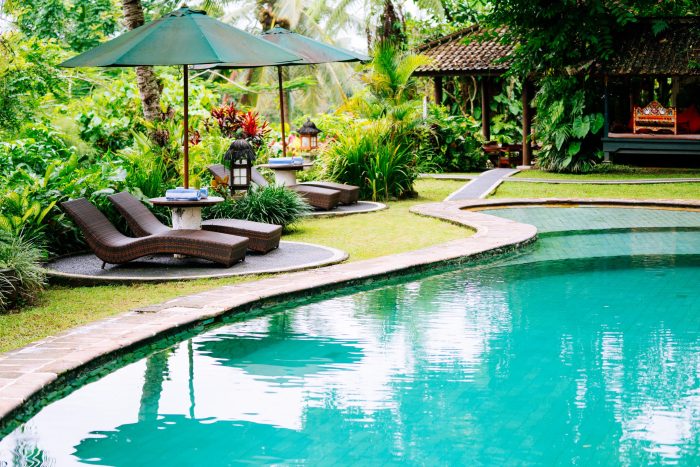
In conclusion, eco-friendly boutique hotels showcase a powerful synergy between luxury hospitality and environmental stewardship. By prioritizing sustainable practices across all aspects of their operations, these hotels not only minimize their ecological impact but also enhance the guest experience and contribute positively to local communities. The future of hospitality undoubtedly lies in embracing responsible tourism, and eco-friendly boutique hotels are leading the way, demonstrating that luxury and sustainability can coexist harmoniously and profitably.
FAQ Corner
What certifications indicate a hotel’s eco-friendliness?
Several certifications, such as LEED (Leadership in Energy and Environmental Design), Green Globe, and Global Sustainable Tourism Council (GSTC) criteria, validate a hotel’s commitment to sustainability. The specific certification held will vary depending on the hotel’s practices and the standards met.
How can I identify truly eco-friendly hotels and avoid greenwashing?
Look beyond marketing claims. Check for third-party certifications, investigate the hotel’s specific sustainable practices on their website, and look for transparent reporting on their environmental performance. Reviews from other guests can also provide valuable insights.
Are eco-friendly hotels more expensive than traditional hotels?
While some eco-friendly hotels may have higher prices due to the investment in sustainable infrastructure and practices, many offer comparable rates to traditional hotels. The cost often reflects the value placed on sustainability and the enhanced guest experience.
What role do guests play in a hotel’s sustainability efforts?
Guests can significantly contribute by participating in the hotel’s recycling programs, conserving water and energy, and choosing to reuse towels and linens. Engaging with the hotel’s educational materials and supporting local businesses recommended by the hotel also helps.

